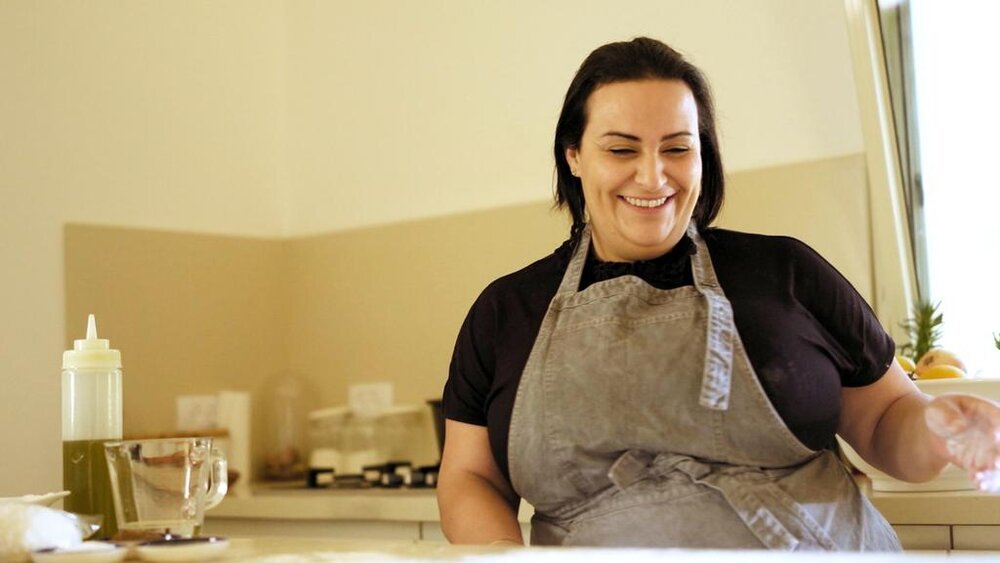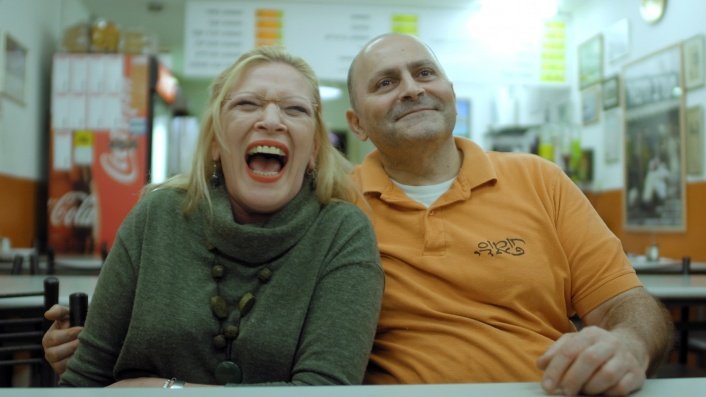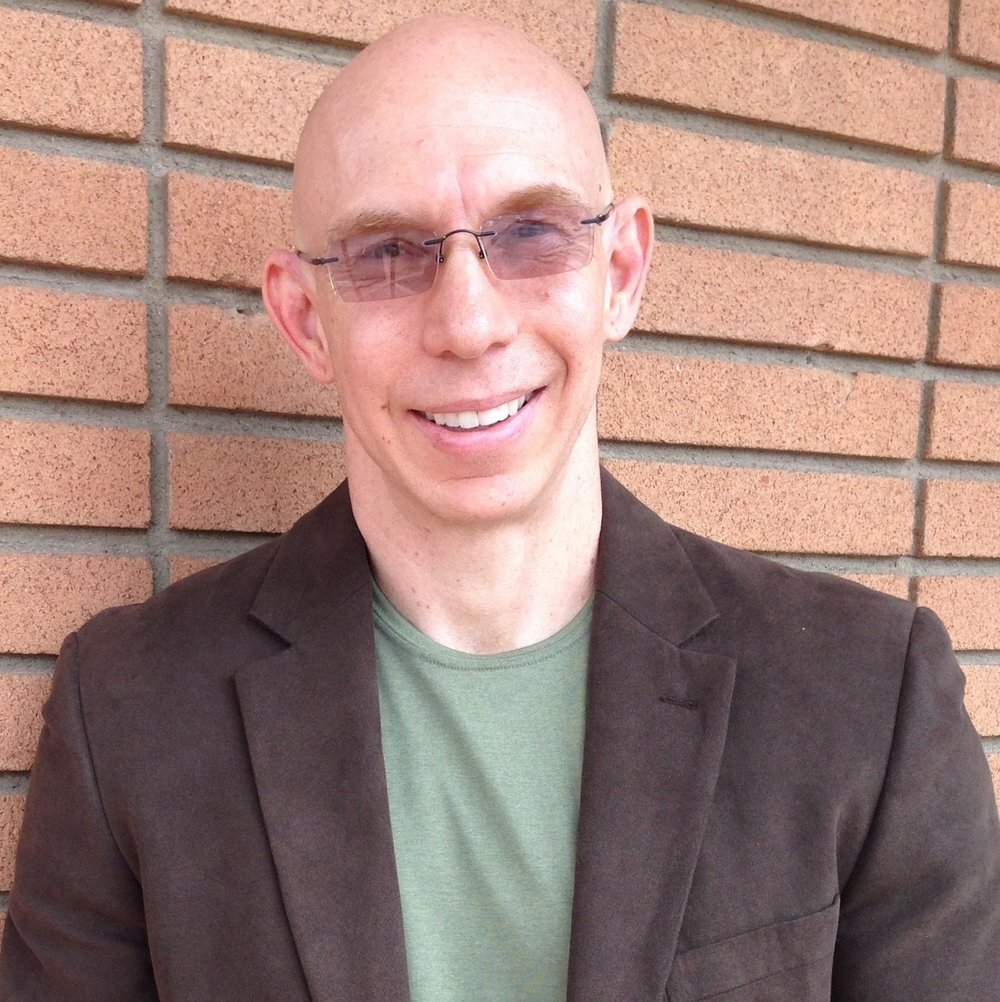Directed by: Beth Elise Hawk
Starring: Dr. Nof Atamna-Ismaeel, Shlomi Meir, Ali Khattib, Osama Dalal, Ilan Ferron, Tomer Abergel, Salah Cordi, Shoshi Karaman, and Fadi Karaman
Runtime: 85 minutes
‘Breaking Bread’: Leave your politics at home but bring your appetite to this warm, sincere documentary
“I don’t believe there is any room for politics in the kitchen.” – Dr. Nof Atamna-Ismaeel
Dr. Nof Atamna-Ismaeel practices what she preaches. In 2014, she – of Palestinian descent - became the first Muslim Arab to win Israel’s MasterChef. Soon after, the good doctor founded the A-Sham Arabic Food Festival, an annual event in Haifa, Israel.
This isn’t an ordinary celebration because Jewish and Arab chefs must work together in individual restaurants and kitchenettes to prepare meals for the flocks of festival attendees.
How about that?
Director Beth Elise Hawk’s inspiring documentary features Dr. Atamna-Ismaeel and several other cuisine artists, as they explain - and also demonstrate in real-time – their experiences in sharing kitchens, cultures, cordial working relationships, and hopefully future friendships.
Hawk takes boundless care in featuring many participating chefs and offers them generous minutes of screen time to tell their personal stories. In most cases, Hawk introduces the cuisiniers as pairs, one Jewish and one Arab, as she interviews them individually and then together. We meet Shlomi Meir and Ali Khattib, Osama Dalal and Ilan Ferron, and Tomer Abergel and Salah Cordi. The men didn’t collaborate or know one another before the festival, but the camera warmly discovers genuine geniality.
“Food can bring us together. No, food can bring the first step, and from there, it depends on what we choose.” Dalal declares.
Ferron says, “I don’t give a f*** that he’s Arab like he doesn’t give a f*** that I’m a Jew. The only thing that we’re going to give a f*** about is making art.”
Viewing The Middle East from across the Atlantic Ocean, tensions never seem to ease. However, Hawk doesn’t find any apprehension between her on-screen guests, as they share stories, spaces, stovetops, and recipes. For instance, Ali holds up a small bag of prepared items that are individual-sized and shaped like racquetballs and tells Shlomi that these will feed 70 people. Later, Shlomi invites Ali into his restaurant’s prep area and teaches him to make one of his dumplings, which he nicely does.
Although only men were previously mentioned in pairs, the festival is not male-only. Female chefs also offer their perspectives, including Shoshi Karaman, a Jewish woman paired with her husband Fadi, an Arab man. The camera loves Shoshi and Fadi because, after just 20 seconds of screen time, you’ll want to invite them out for a drink, coffee, or dinner, if they cook, of course.
The film offers personal close-ups of all the players, both literally and figuratively (with their backstories), but also the meals – big and small – that they prepare. With a runtime of 85 minutes, Hawk spends about 70 by tap-dancing between picturesque Haifa (a coastal locale in which a portion of the city center sits on an enormous butte), other nearby locations, the featured personalities, and naturally, food!
If you are trying to lose weight or fast, do not watch “Breaking Bread”. Hawk features dozens upon dozens of mouth-watering meals from the region, including countless shots of salads, hummus, pitas, dumplings, towering plates of peas, rice, spices, and meats. Our director isn’t bashful about showcasing the diverse, delectable, and delicious dishes that attract our eyes and appetites.
“Breaking Bread isn’t a procedural-based doc that details the festival’s logistics and explicitly describes specific recipes.
Instead, Hawk dives deeply into a few key stories to illuminate the chefs’ specific outlooks and experiences, both historically and today. Then, she thoughtfully includes the new harmonious connections along with splendid cuisine. This movie is a constant array of good feelings and intentions, instead of frequent news reports that pose the opposite view.
The doc, however, spends so much time with the new cooking celebrities that Hawk only leaves about 10 minutes for the festival itself. This critic looked at his watch a few times while wondering when the formal festivities would begin. We see a few restaurant settings and numerous joyful moments in the kitchens during the A-Sham Arabic Food Festival, but the film doesn’t catch broad, wide shots of crowds in the streets of overhead captures of the setting. Yes, everyone seems cheerful and jolly, but we didn’t get interviews of the patrons enjoying their meals. It feels like a big miss, but perhaps the crew dealt with filming limitations during the event.
Still, “Breaking Bread” spreads so much goodwill and introduces these surprising, sincere collaborations that this documentary is worth a trip to the movies. Hey, this doc might inspire you to drop some serious cash on a one-way ticket to Haifa for a holiday getaway of dining.
Just leave your diet and politics at home.
Jeff’s ranking
2.5/4 stars














